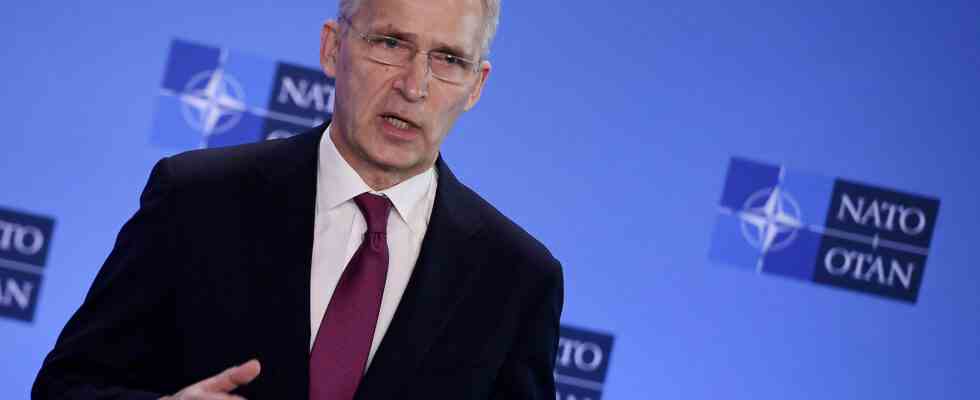Status: 03/04/2022 3:34 p.m
NATO chief Stoltenberg has made it clear that the alliance will not enforce a flight ban in Ukraine as requested by Kyiv. At the same time, the Secretary General made a gloomy prognosis.
NATO will not comply with Ukraine’s request to enforce a no-fly zone over Ukraine. The topic had been addressed, said NATO Secretary General Jens Stoltenberg after consultations with the foreign ministers of the member states in Brussels. However, the Allies agreed that NATO aircraft should not operate in Ukrainian airspace.
“As a NATO ally, we have a responsibility to prevent this war from escalating beyond Ukraine because that would be more dangerous, more devastating and cause more human suffering,” Stoltenberg said. To enforce a no-fly zone, NATO fighter jets would have to fly into Ukrainian airspace and shoot down Russian planes.
We understand Ukraine’s desperation, but we are convinced that such a move could lead to a major war across Europe.
Selenskyj’s desperate appeal
Ukrainian President Volodymyr Zelenskyy had previously urged the NATO countries to prevent Russia from launching further airstrikes on his country. “If you don’t want to close the sky now, give a deadline,” he said. “Tell me how many people should fly up in the air, how many arms, legs, heads do you need for that to get through to you?”
A no-fly zone, designed primarily to protect a troubled faction in a war, was first implemented in Iraq in 1991. This was preceded by a UN resolution calling for better protection for the Kurdish population in northern Iraq and for the Shiites in the south. At the time, US and UK warplanes monitored the grounding to protect Kurds and Shiites from attacks under then-Iraqi President Saddam Hussein.
NATO is considering substantial rearmament in the east
According to Stoltenberg, in addition to the discussion about enforcing a no-fly zone, the NATO countries were also discussing extensive rearmament in the eastern alliance area. “We are now seriously considering a significant increase in our presence – with more troops, with more air defense, more deterrence.” Details are expected at a meeting of defense ministers on March 16.
Stoltenberg pointed out that the decision could be given a little more time, since the eastern flank had already been strengthened immediately after the start of the Ukraine war. He was alluding to the fact that thousands of additional soldiers were being sent to the Baltic States and countries like Romania, among other things.
Stoltenberg also promised stronger support from the alliance for the partner country Georgia, which borders Russia, and for Bosnia-Herzegovina.
Putin: “Don’t heat up the mood”
Russian President Vladimir Putin had previously warned Russia’s neighboring countries about an escalation of the situation and threatened: “I would advise you not to escalate the situation, not to introduce restrictions, we are fulfilling all our obligations and will continue to fulfill them,” said the head of state of the agency According to Interfax in Moscow. Russia had “no bad intentions towards our neighbors”.
Putin said he saw no need to worsen relations. He participated via video link in the commissioning of a new ferry between Ust-Luga near St. Petersburg to the Baltic Sea region of Kaliningrad. The 200 meter long ship is intended to bring food and building materials to the Baltic Sea exclave, for example. Because of the Russian war against Ukraine, many Western countries have denied overflights to Russian planes.

